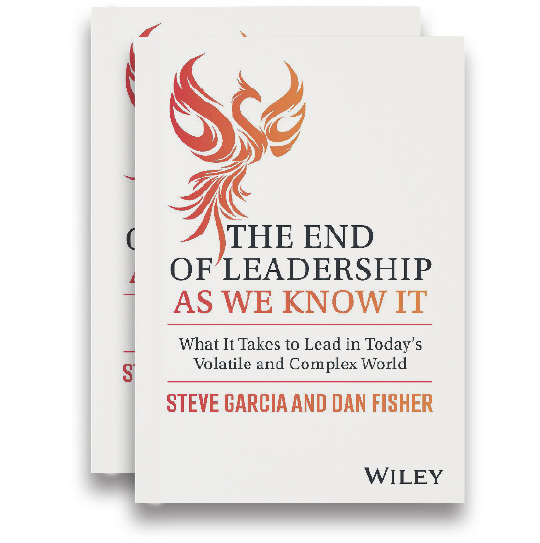Two things seem crystal clear about the future. First, things are changing faster and faster, and that trend will continue. Logically then, leaders need to be able to learn and adapt faster and faster if they want to keep pace. Second, different kinds of things are changing, and in different ways. Therefore, leaders need to learn different kinds of things faster, and adapt more quickly in new and different ways. For the first need, it’s possible that our current leadership development programs and processes are sufficient to address the pace of change. But for the second, it’s a different game entirely.
A 2013 survey from Duke Corporate Education highlights this sea change – unlike any previous year, CEOs from around the world reported significantly greater complexity and disruption, requiring them to create new paradigms rather than simply drive linear, incremental change ever faster. The problems they encounter today are multidimensional, emergent, and unpredictable. They find that their current knowledge is often unreliable or irrelevant in light of these new challenges.
So how do we help leaders learn to deal with this new, volatile, uncertain, complex, and ambiguous (VUCA) world? Three things are essential to thrive in this VUCA context. First, a mindset of curiosity and openness, with regular opportunities for reflection, so leaders can see things fresh, question their assumptions, and explore new ideas. Second, a community of engaged peers and colleagues to provide support, encouragement, and a safe place to cultivate new ideas and behaviors. We’ll examine these two elements in more depth in upcoming blogs.
The third element is more of a stretch for many leaders: to prepare for a disruptive future, they will need sufficient exposure to new and different kinds of experiences such that they actually begin to feel comfortable in that space. It’s a bit of a paradox, but to get good at leading through disruption, leaders need to seek exposure to new, different, stressful, and challenging experiences: The DNA of VUCA: Diversity, Novelty, Adversity. Leaders with the courage to embrace this will learn faster, and will learn different kinds of things, in new and different ways, better than their peers.
Many leaders who do not embrace the DNA of VUCA will gravitate toward the familiar territory of their well-honed skills – and keep doing what has made them successful in the past. As things around them change, they lose their edge and eventually lose out to more nimble, agile learners.
Separately, each of the DNA elements contributes something useful; together, they are a potent accelerator of learning.
Exposure to diverse experiences provides a variety of lenses to see things from multiple perspectives. Leaders who have worked in different cultures, across different cultures, or those who have worked across multiple functions and organizations, learn a broader range of skills and methods for dealing with situations. They learn to flex and adjust based on the situation.
Exposure to novel experiences, when accompanied by curiosity and reflection, teaches people that they can step into the unknown, make sense of things, and keep moving. They learn not to fear the unknown, and so can keep their wits about them when faced with strange, unfamiliar situations.
Exposure to adverse experiences, especially in the context of supportive relationships – including a coach or mentor — have the potential to be the most transformational. Richard Branson claims that “The best developer of a leader is failure.” Experience with failure can teach people humility, among other things, but it is hard to approach leadership development with the lens of “let’s set people up to fail a lot so they learn a lot!” So, on the one hand, it’s critical to help people to extract the right lessons from the failures and setbacks when they occur naturally, and not shy away from confronting their experiences. On the other hand, putting people into situations where they are stretched to the point where success is not a certainty, where the stakes are high, and the outcomes matter, leads to the greatest potential for learning. Especially, as noted previously, in the context of a supportive community, a trusted coach, or a manager who is invested in the person’s long-term success.
As an added benefit, David DeSteno, a researcher at Northwestern University, has found that experiences with severe adversity actually lead to greater empathy and compassion toward others.
In the increasingly complex and challenging VUCA world ahead of us, experiences with diversity, novelty, and adversity are coming our way, whether we like it or not. Those who seek and embrace the DNA of VUCA, and learn from it, are going to be far better prepared to thrive.
